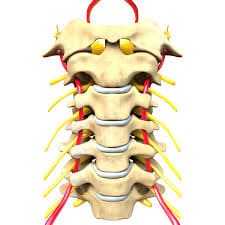
The way the VA rates back or neck claims tend to result in rather low grants. You can have truly bad back or neck pain, but you may still only be rated at a 0%, 10%, or 20% rating. However, there is a case pending at the Court of Appeals for Veterans’ Claims (CAVC) that may mean entitlement to higher ratings for Veterans who have been given a low rating for their neck or back claims. This case could mean higher ratings for Veterans who experience flare-ups that freeze their neck or back in place for short periods of time.
Veterans can get spinal disabilities rated in one of three ways.
The first way, and the way most Veterans are rated, is based on limitations to their range of motion (ROM). This is also the reason most Veterans get a low rating, as most people can still actually move their neck or back to a reasonable degree, even with a disability.
The second way to get rated for a spinal disability is based on “incapacitating episodes” if the Veteran is diagnosed with intervertebral disc syndrome. The VA defines “incapacitating episodes” as periods requiring bed rest and treatment prescribed by a physician. Veterans are not often rated this way because even if an incapacitating episode puts you out of commission for a period of time, the VA is not going to count it as an “incapacitating episode” unless you get a doctor’s note ordering that you stay in bed.
The third way to get rated for a spinal injury is if you experience “ankylosis” of the thoracolumbar or cervical spine. Ankylosis means that your neck, back, or both, are frozen in place; that is, no movement at all is possible. A Veteran can be rated anywhere from 30% to 100% disabled for their neck or back if their neck or back, or both, have ankylosis. It is also rare for Veterans to be rated this way.
However, other areas of VA law require that the VA consider how much “flare-ups” affect a Veteran when rating him or her. That is, when symptoms are at their worst, even for short periods of time, the Veteran should be rated based on their flare-up symptoms.
This raises a question regarding situations where symptoms of flare-ups actually match symptoms of ankylosis, even if a Veteran’s neck or back is not permanently frozen in place. If a Veteran experiences flare-ups where they can’t move their neck or back at all, does that mean they have temporary “ankylosis” of their neck or back and should be entitled to higher ratings?
This is the argument before the CAVC right now in case 18-2928, Chavis v. Wilkie. If the Court finds in favor of the Veteran, this could mean that Veterans may be entitled to higher ratings for their neck or back claims.
If you are a Veteran and you need assistance appealing a VA decision, Berry Law can help. Berry Law has helped thousands of Veterans successfully appeal unfavorable VA decisions. Contact Berry Law today to schedule a free case evaluation.
Our monthly newsletter features about important and up-to-date veterans' law news, keeping you informed about the changes that matter.